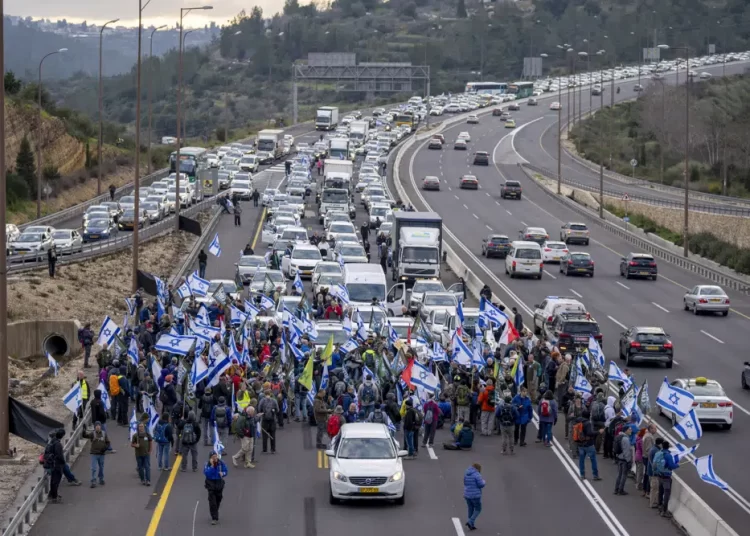TEL AVIV, Israel — Shraga Tichover is hanging up his fatigues. After more than three decades as a reservist in the Israeli military, the paratrooper says he will no longer put his life on the line for a country slipping toward autocracy.
Tichover is part of a wave of unprecedented opposition from within the ranks of the Israeli military to a contentious government plan to overhaul the judiciary. Like Tichover, some reservists are refusing to show up for duty and former commanders are defending their actions as a natural response to the impending change.
“The values of this country are going to change. I a not able to serve the military of a state that is not a democracy,” said Tichover, a 53-year-old volunteer reservist who has served in southern Lebanon, the Gaza Strip and the West Bank.
The typically taboo talk of defying military orders underlines how deeply the overhaul has divided Israel and is now tearing at what Israeli Jews see as their most respected institution, the military. Concerns are growing that the protest could trickle down to young conscripts as well.
In a declaration that has sent shock waves through the country, three dozen reservist fighter pilots said they wouldn’t show up for training this week in protest. The airmen are seen as the cream of the military’s personnel and irreplaceable elements of many of Israel’s battle plans.
The military’s chief of staff, Lt. Gen. Herzl Halevi, reportedly warned Prime Minister Benjamin Netanyahu this week that the reservists’ protest risks harming the military’s capabilities.
For Israel’s Jewish majority, most of whom must serve in the military, the army is a source of unity and a rite of passage. Military service is an important launching pad into civilian life and the workforce.
After completing three years of mandatory service, many men continue in the reserves until their 40s, when service becomes voluntary. Most of those threatening to halt their service are volunteers, protecting them from potential punishment.
Recognizing the threat to its stability, the military has pleaded to be kept out of the heated public discourse. But it’s become central to the debate over what kind of Israel will emerge after the overhaul.
Netanyahu, a former soldier in an elite unit, and his government are pushing forward on a plan to weaken the Supreme Court and limit the independence of the judiciary. His allies say the changes are meant to streamline governance, while critics say the plan will upend Israel’s system of checks and balances and slide the country toward authoritarianism. They also say Netanyahu, who is on trial for corruption, is motivated by a personal grudge and has a conflict of interest.
The overhaul, which is moving ahead in parliament, has sparked an outcry from business leaders and legal officials. Tens of thousands of protesters have been taking to the streets each week.
Not everyone identifies with the soldiers. Critics say the military, as the enforcer of Israel’s rule over millions of Palestinians in an open-ended occupation, has subjugated another people and eroded the country’s democratic ideals. The reserve units now protesting, including pilots and intelligence units, have been behind deadly strikes or surveillance against Palestinians.






Discussion about this post